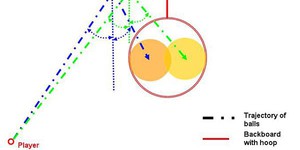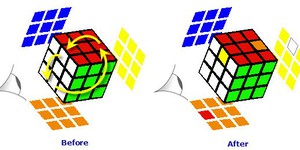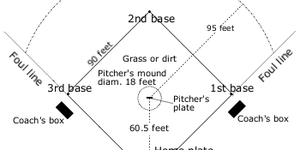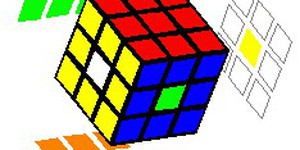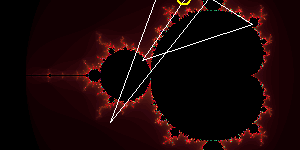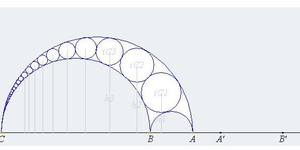Tenth Grade, Pure Mathematics Science Projects (20 results)
Wikipedia defines mathematics as "the study of quantity, structure, space and change." With a definition like that, it's easy to see why math is often called "the language of science." Math is essential for analyzing and communicating scientific results, and for stating scientific theories in a way that is clear, succinct, and testable.
|
Select a resource
Sort by
|
If you've ever played or watched basketball, you might already know that your chances of successfully banking a shot on the backboard are higher in certain positions on the basketball court, even when keeping the distance from the hoop the same. Ever wondered what would account for this? Do you think you could actually explain this using geometry? This science project will put your knowledge of geometry and algebra to good use. You will calculate and quantify how much more difficult it is to…
Read more
Featured
Have you heard that garlic powder is supposed to inhibit the growth of bacteria? Which do you think would make a better disinfectant: a solution of garlic powder or a solution of bleach? This project shows you a straightforward way to compare the effectiveness of different disinfectants (or other antimicrobial agents), by measuring zones of inhibition on a culture plate.
Read more
You might think that one sure-fire way to keep your computer safe from hackers is to disconnect it from the internet entirely. But did you know that even without internet, a computer can transmit data using light, sound, vibrations, or even heat? In this project, you will investigate how a spy or hacker can steal data from an "air-gapped" computer that has no internet connection. You can even use a smartphone equipped with a sensor app to demonstrate how the data can be picked up by a nearby…
Read more
New
Remembering to take medicine at the right time can be hard, especially if you need to take multiple medications at different times of day. It might not be a big deal if you forget to take your daily multivitamin, but for some people, forgetting to take medication at the right time can be dangerous. What if you had a device that could not only set off an alarm at the right time, but also automatically dispense the right pills for you? In this project, you will build an automatic medicine…
Read more
If you have ever tried to hit a target (such as a trash can) with a wad of paper, you know that aim is everything. But it is not always easy to get it right every time! Missing is not that big a deal with a wad of paper, but what if you were in an invading army in the Middle Ages, using a catapult to hurl huge stones and knock down castle walls? For a successful invasion, it would be important to know exactly how far, and how reliably, a catapult could launch a projectile. In this project you…
Read more
If you're the kind of person who has taken apart your Rubik's cube in order to grease the inside parts so it will move more smoothly, this could be a great project for you. We'll show you three sets of move sequences that accomplish specific rearrangements of the cube. Can you devise a way to solve the cube using only these three move sequences?
Read more
Have you ever wondered how playing in a certain stadium affects how well the athletes perform? Major League Baseball (MLB) is played in ballparks that have their own individual quirks when it comes to the exact layout of the field. How an individual ballpark affects player performance, which is known as ballpark effects, is heavily investigated in the field of baseball. To name just a few parks and their different traits, Fenway Park (the long-time home ballpark for the Boston Red Sox in…
Read more
New
Drones are small, fast, and maneuverable - this can make them very hard to knock down! Check out this Mark Rober video where he explores both how professional defense companies and some backyard YouTube engineers tackle the problem of knocking drones out of the sky. Can you take this engineering challenge on yourself? What methods can you devise to take down a drone? Which one works the best?
Drones can be expensive, and you probably do not want to risk damaging a $1,000 drone for your science…
Read more
This project challenges you to figure out how to make geometric patterns with Rubik's Cube. Leaving your cube in one of these positions makes it much more tempting to pick it up and 'fix' it. Can you figure out how to make a checkerboard, or a cube-within-a-cube? Can you make only the center piece a different color from the rest? Can you figure out how to solve the cube from these positions?
Read more
Although fractal images can be intriguingly complex, fractals are more than just pretty pictures. In this project, you'll explore the mathematical properties of the famous Mandelbrot (illustration on the Background tab) and Julia sets. You'll learn about how these images are generated, and about the relationship between the Mandelbrot set and the Julia sets.
Read more
How do you turn a 2-dimensional piece of paper into a 3-dimensional work of art? Origami, the classical art of Japanese paper folding, is loaded with mathematical themes and concepts. What are the common folds in origami, and how do they combine to create 3-dimensional structure? Can you classify different types of origami into classes based upon the types of folds they use? Can you show Kawasaki's Theorem, that if you add up the angle measurements of every other angle around a point, the sum…
Read more
Music has many mathematical elements in it: rhythm, pitch, scale, frequency, interval, and ratio. There are many ways to turn these elements into a science fair project. You can investigate how the scale is based upon a special type of number sequence called a Harmonic Series. Another scale used by Bach, called the "Well-Tempered-Scale" or the "Equal-Tempered-Scale", is based upon a series. How are these mathematical series and ratios related to notes, chords, intervals, and octaves? You can…
Read more
|
Explore Our Science Videos
How to Measure Light with Google's Science Journal App
Candy Diffusion Art
Make A Tissue Paper Parachute - STEM Activity


